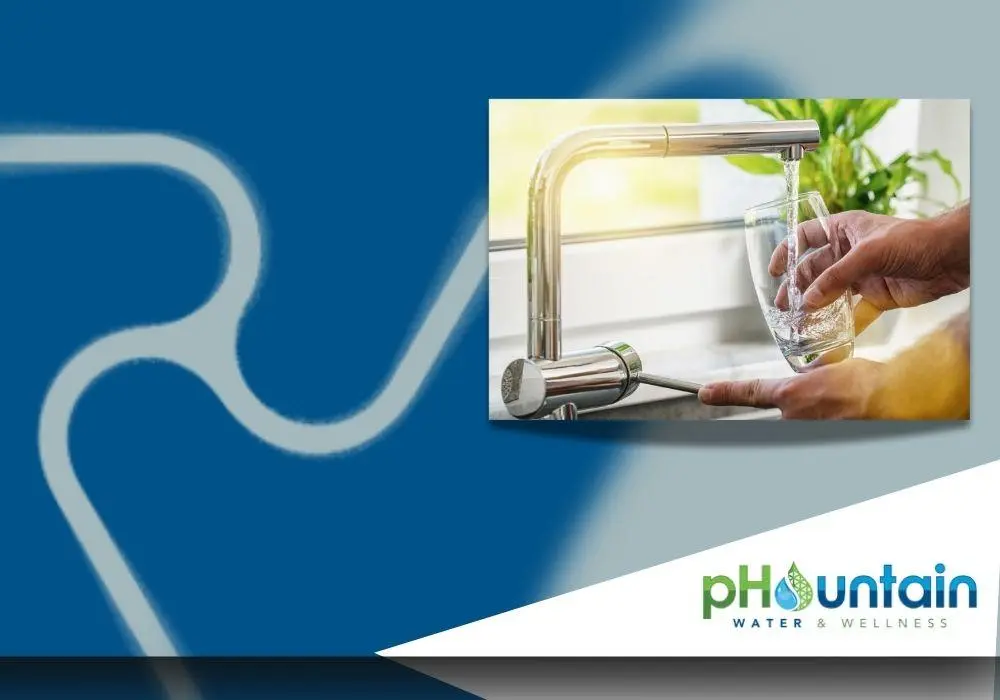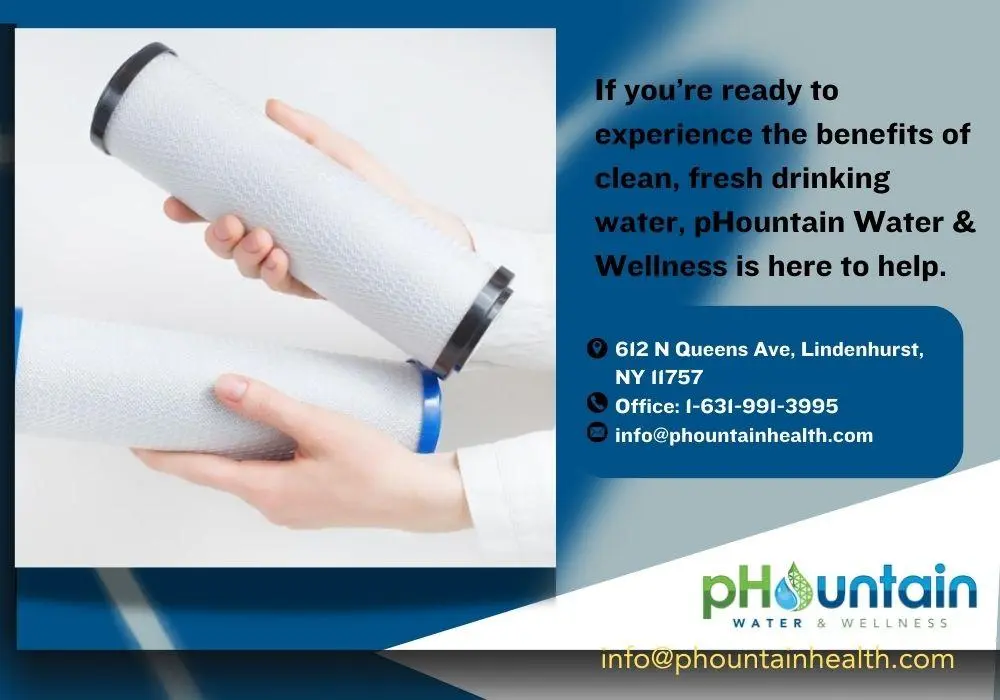
What Do They Remove from Your Drinking Water?
You need clean drinking water for your health. With concerns about water quality rising, many people are turning to activated carbon filters for help. But what exactly do activated carbon water filters remove from your drinking water? In this blog, we’ll explore the benefits of activated carbon filters and why they’re one of the best options for improving water quality.
What Are Activated Carbon Water Filters?
Before exploring what activated carbon water filters remove, let’s first understand what they are. Activated carbon water filters use a form of carbon that’s been processed to create small, porous particles. These tiny pores trap contaminants and improve water quality.
Granular activated carbon (GAC) and carbon block filters are two types of these filters. Both types work effectively in purifying water but may target different contaminants. Check the details about effectiveness of activated carbon water filters.
How Do Activated Carbon Filters Work?
Activated carbon works through adsorption, not absorption. This means the contaminants stick to the surface of the activated carbon water filter rather than getting soaked into the material. Because of its large surface area and porous nature, activated carbon may draw in a wide range of impurities from your water.
When water passes through the activated carbon filter, contaminants get trapped in the pores while clean water flows out. This is among the best methods for minimizing specific chemicals, tastes, and smells.
What Contaminants Do Activated Carbon Water Filters Remove?
One of the biggest benefits of activated carbon filters is their ability to remove harmful substances from drinking water. Here’s what activated carbon water filters can remove:
1. Chlorine
To sanitize municipal water sources, chlorine is frequently employed. However, a potent bacteria-killer, chlorine can leave an unpleasant taste and odor in drinking water. Activated carbon filters are highly effective in reducing chlorine content and improving the overall taste and smell of your water. Activated carbon filters, also known as activated charcoal filters, excel at removing chlorine and other contaminants, ensuring that your drinking water is cleaner and more enjoyable.
2. Chloramine
Chloramine, a combination of chlorine and ammonia, is also utilized in water treatment procedures. Although less aggressive than chlorine, it can still cause water to taste bad. Activated carbon water filters can help remove chloramine and provide fresher-tasting water.
3. Volatile Organic Compounds (VOCs)
VOCs are substances that may be in your water and that evaporate quickly into the atmosphere. These include insecticides, formaldehyde, and benzene, which can harm one’s health if inhaled. Activated carbon filters effectively reduce these harmful substances, making your water safer to drink.
4. Herbicides and Pesticides
Many water sources contain traces of herbicides and pesticides due to agricultural runoff. Activated carbon water filters are good at removing these contaminants, preventing them from entering your drinking water.
5. Trihalomethanes (THMs)
THMs are chemical byproducts that form when chlorine reacts with organic matter in water. Prolonged exposure to THMs may lead to health issues. Activated carbon filters help in reducing THMs, making your drinking water safer.
6. Pharmaceuticals
Numerous medications, including antibiotics and painkillers, have been found in water supplies, according to studies. The long-term implications of ingesting trace medicines are yet unknown, despite the low amounts. Activated carbon water filters can remove some of these pharmaceutical residues, improving water quality.
7. Industrial Chemicals
Water streams can get contaminated by chemicals used in industrial processes, including fuel waste, cleaning agents, and solvents. Activated carbon filters are useful in filtering out these harmful industrial chemicals, ensuring that your water remains clean.
8. Heavy Metals (Partial Removal)
While activated carbon filters are not primarily designed to remove heavy metals like lead, mercury, and copper, they can help reduce their presence to some extent. For more effective heavy metal removal, combining an activated carbon filter with another filter type may be necessary.
9. Microplastics
Microplastics are tiny plastic particles that can end up in water sources through plastic waste. Despite their small size, these particles could pose a health risk. Activated carbon filters can trap some microplastics, offering additional protection.
What Activated Carbon Water Filters Can’t Remove
Although activated carbon filters are excellent for removing many contaminants, they’re not a one-size-fits-all solution. There are certain substances these filters cannot effectively remove, such as:
- Viruses and bacteria: While they can reduce some bacteria levels, activated carbon water filters are not designed to remove viruses or harmful bacteria. You’ll need a UV purifier or reverse osmosis system for that.
- Dissolved solids: Activated carbon filters do not remove dissolved solids like salts and minerals. For this, a reverse osmosis system could be more appropriate.
- Nitrates and fluoride: These chemicals require more advanced filtration methods, such as reverse osmosis or ion exchange.
Benefits of Using Activated Carbon Water Filters
There are several reasons why activated carbon water filters have become a popular choice for home water filtration systems:
1. Improved Taste and Odor
One of the most immediate benefits of using activated carbon filters is improving the taste and smell of your water. Chlorine and other chemicals can leave a strong aftertaste, but activated carbon water filters can remove these, leaving your water tasting clean and fresh.
2. Removal of Harmful Chemicals
As mentioned, activated carbon filters can remove many harmful chemicals, including VOCs, pesticides, and pharmaceuticals. This makes your water safer to drink, lowering your family’s risk of health issues.
3. Environmentally Friendly
Using activated carbon water filters reduces the need for bottled water. It can lessen the trash produced by plastic, making it a more ecologically friendly option. Many activated carbon filters are also recyclable, further contributing to sustainability.
4. Low Cost and Maintenance
Activated carbon filters are generally affordable and easy to maintain. Depending on water usage, most systems only require filter replacements every few months. When compared to other water filtering systems, this makes them more affordable.
Different Types of Activated Carbon Filters
There are several types of activated carbon filters available, each designed to address specific filtration needs. Here’s a breakdown of the most common types:
1. Granular Activated Carbon (GAC)
GAC filters contain loose carbon granules. Water flows through the granules, and contaminants are trapped in the pores. GAC filters are effective in reducing chlorine, VOCs, and bad odors.
2. Carbon Block Filters
Carbon block filters use compressed activated carbon, which is denser than GAC filters. Owing to their high density, they are better at eliminating some toxins, including THMs and medicines, and can even remove tiny particles.
3. Activated Carbon Cloth
This type of filter is made of activated carbon woven into cloth form. In certain situations, activated carbon cloth—which is utilized in specialist filtration systems—can eliminate a variety of impurities, including chemicals and microorganisms.
4. Catalytic Carbon Filters
Catalytic carbon filters are a more advanced type of activated carbon water filter. They are an excellent option for municipal water supplies because of their unique design, eliminating chloramine and other tough impurities.
Where to Use Activated Carbon Water Filters in Your Home
Activated carbon filters are versatile and can be used in various points of your home’s water system. Here are some instances of typical applications:
1. Faucet Filters
Faucet-mounted filters are easy to install and provide clean water directly from your kitchen tap. These filters use activated carbon to remove contaminants like chlorine and VOCs.
2. Under-Sink Filters
Under-sink filters are more discreet and are installed beneath your kitchen sink. These filters use activated carbon to provide clean water for drinking and cooking.
3. Whole House Filters
Whole-house filtration systems treat all the water entering your home. These systems often use activated carbon water filters to remove chlorine, chemicals, and bad odors from the water used for drinking, bathing, and washing.
4. Pitcher Filters
Pitcher filters are convenient for small households. They use activated carbon to remove impurities from the water stored in the pitcher, providing clean water at any time.
Are Activated Carbon Water Filters Right for You?
If you’re looking for a cost-effective way to improve the taste, smell, and quality of your drinking water, carbon-activated water filters might be the perfect solution. They utilize carbon filtration to remove various dangerous substances and organic chemicals, making your water cleaner and safer.
However, if your water contains noticeable levels of bacteria, nitrates, or heavy metals, you might want to consider installing a more advanced filtering system. Activated carbon filters are excellent for treating common household water issues, but they may not be sufficient for all water quality problems.
Carbon Filters vs. Activated Carbon Air Filters: Key Differences
Carbon Filter
A carbon filter is a type of filter used to remove impurities, odors, and contaminants from various substances like air, water, and chemicals. The filter contains carbon, typically in the form of granules or blocks, that have been treated to become highly porous. These pores trap and hold particles, chemicals, and unwanted substances, preventing them from passing through.
Carbon filters work primarily through a process called adsorption, where contaminants adhere to the surface of the carbon material. Because of their exceptional ability to remove gases, smells, chlorine, and volatile organic compounds (VOCs), carbon filters are widely used in air purifiers, water filtration systems, and industrial applications.
Activated Carbon Air Filter
An activated carbon air filter is a specific type of air filter that uses activated carbon (also known as activated charcoal) to remove harmful gases, odors, and airborne chemicals from the air. The charcoal used to make these filters has been treated to increase its surface area and quantity of tiny pores. These pores help adsorb contaminants, trapping them in the filter rather than allowing them to circulate in the air.
Activated carbon air filters are particularly effective at removing volatile organic compounds (VOCs), tobacco smoke, cooking odors, and even some industrial chemicals. Made from activated charcoal, often derived from coconut shells, these filters are widely used in air purifiers, HVAC systems, and cars to improve air quality. The activation process creates a large surface area with numerous tiny pores that adsorb gases and odors. However, while activated carbon air filters are excellent at adsorbing gases and odors, they are usually combined with other filters like HEPA filters to remove particles like dust and pollen.

How to Choose the Right Activated Carbon Water Filter
Selecting the right activated carbon water filter depends on your water quality and personal preferences. Consider the following aspects while choosing a filter:
1. Water Quality
Test your water to identify the contaminants present. This will help you determine whether an activated carbon filter is enough or if you need additional filtration systems.
2. Filter Lifespan
Check the filter’s lifespan before buying. Filters with a longer lifespan will need fewer replacements, saving you time and money.
3. Installation Type
Choose the location for your filter installation. Select the filtration level that best meets your requirements from the several faucet, under-sink, and whole-house system options available.
4. Certification
Look for filters certified by organizations like NSF International. Certified filters meet certain standards for reducing contaminants, ensuring that your filter will work effectively.
Experience Cleaner Water with pHountain Water & Wellness Activated Carbon Filters
If you’re ready to experience the benefits of clean, fresh drinking water, pHountain Water & Wellness is here to help. Our top-quality activated carbon water filters are designed to remove many harmful contaminants, giving you the purest water possible. Whether you’re dealing with chlorine, VOCs, or industrial chemicals, our filters are the perfect solution for improving your water’s taste, odor, and safety. Visit us today to explore our range of activated carbon water filters and start your journey toward better health with cleaner water!


